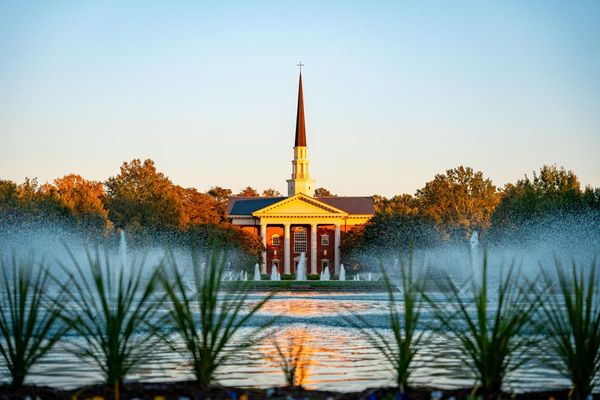Do we need another performance of George Friedrich Handel's “Messiah”? Almost everybody at Furman has heard it, whether live or on their parents' CD player in December. Is “Messiah” the music we need to hear again in the 2020s?
The answer is yes.
One of Furman’s treasured yearly traditions is the production of Handel’s “Messiah.” On Dec. 1st at 7:30 p.m., the Furman Symphony Orchestra and the Furman Singers will join forces in the performance of this holiday masterwork, and it will be a spectacle you will not want to miss.
“Messiah” has become an emblem of the Christmas season, most known for its famous “Hallelujah” chorus. It is a complex and timeless work of art that speaks to people from all generations and backgrounds.
Composed in 1741, it was originally intended to be performed for Easter, not Christmas. At nearly three hours long, it artfully follows the story of Jesus Christ: his birth, life, death, and resurrection (the program Friday will only be part one, which tells of his birth, and includes the “Hallelujah” chorus near the end of the oratorio).
It was not until 1818 that the piece reached the United States, when the newly formed Handel and Haydn Society in Boston, Massachusetts, performed the piece in full on Christmas day. This performance marked not only the American premiere of the work but also the birth of a Christmas tradition that would last for centuries to come.
Written in just 24 days, the variety of the oratorio is remarkable. There is a little bit of everything: solos, duets, choruses, instrumental movements, and recitatives. Sometimes, Handel directs the entire orchestra to play, while in other sections, only the principals of each section are to play, creating a more intimate sound. Recitatives, in which a soloist sings in such a way that emulates natural speech patterns, give the oratorio a particular depth of character: because the soloist has more control over the rhythm and timing, they are able to assume the role of a storyteller and invite the audience to engage in the story.
The oratorio begins with a dramatic overture, played only by the instrumentalists, hinting at the intensity of passion that is to come. From there, Handel captures the beauty of the Christmas story in a myriad of ways, highlighting voices both individually and collectively. From the drama of the bass recitative “Thus Saith the Lord” to the lush tranquility of the instrumental “Pastoral Symphony” to the sheer triumph and glory of the “Hallelujah” chorus, Handel colorfully paints the Christmas story.
The oratorio will be directed by Dr. Stephen Gusukuma, director of choral activities at Furman.
“I remember listening to my parent’s vinyl LP of highlights from ‘Messiah’ by the Robert Shaw Chorale and Orchestra growing up, and first sang choruses from “Messiah” as a high school student combined with a local college choir,” Dr. Gusukuma says. “I continued to have interactions with the work throughout my doctoral training at Michigan, and then years leading annual Messiah Sing-Alongs, so it is a thrill for me to conduct these students in a work that has been such a valuable part of my own musical life and training.”
He also touches on Furman’s history with the piece, noting that it has been a holiday tradition here since the 1970s and earlier.
“It is one of the performances that draws the broadest of audiences from across our campus, community, and beyond,” he says.
His words ring true: it is a piece that invites people of all generations and backgrounds to celebrate a story we all know so well. The oratorio may be 282 years old, but the magic of the “Messiah” is timeless.
